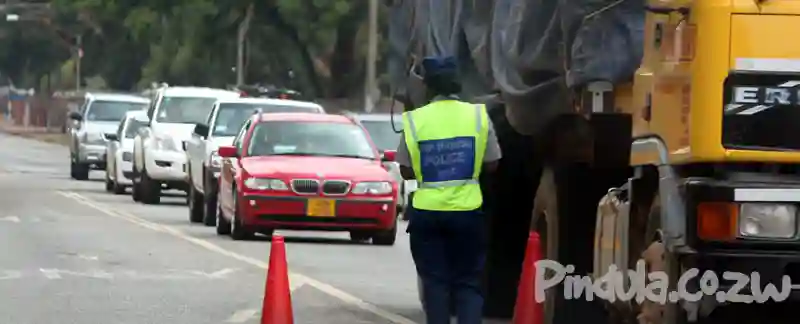Police Superintendent Vulindlela Jamela, who holds the position of deputy officer commanding the Kwekwe district in Zimbabwe, has been implicated in a case of road extortion. A motorist, Tapiwa Marozva, reported that he was forced to pay a $5 bribe to four traffic officers along the Kwekwe-Zhombe road, NewsHub’s Brenna Matendere reported.
Marozva reported an incident of bribery to ACT-SA, who then informed Superintendent Jamela. However, Jamela returned the bribe money and dismissed the matter as minor, without taking action against the officers involved. Marozva stated in his written statement that he was stopped by four police officers while transporting mourners and was asked to pay a $5 bribe. He borrowed the money from a friend to satisfy the officers’ demands. Read part of the complaint:
My plight started on the 29th of August 2023, when I was forced to pay a US$5 bribe to police officers based in Kwekwe who had mounted a roadblock along Kwekwe-Zhombe road.
Upon pressure from four police officers…comprised of (sic) two female and two male (police details), I ended up borrowing the money from my friend known as Shingi and paid the bribe since I did not want to delay the mourners who were rushing to attend a funeral service.
These mourners are my witnesses and they will explain what happened if needed. In addition, the person from whom I borrowed the money knows exactly the purpose of the money that I borrowed from him and can testify.
Marozva expected action from Jamela against the four police officers involved, but Jamela returned the $5 bribe and dismissed the incident as minor. According to the Police Act, Jamela should have taken disciplinary or criminal action. Jamela claimed he didn’t act because Marozva couldn’t identify the officers, but ACT-SA had provided their identities. Police procedures require keeping records of officers’ deployments which means the identities of involved officers are known. Jamela stated that returning the money was a personal decision to assist Marozva, not a cover-up. He told NewsHub:
There were no names which were given to me by the complainant regarding who he gave the bribe money so I could not act on the matter.
That ($5) was not a refund of the bribe money. It was just money from my pocket which I gave the complainant to use as bus fare to go back to his home.
Jamela stated that he didn’t want to give much importance to the information provided by ACT-SA because he didn’t trust their director, Obert Chinhamo. He said Chinhamo was involved in criminal activities and didn’t consider him to be a professional. Therefore, he didn’t want to engage with him.
ACT-SA has been monitoring and documenting corruption cases in Kwekwe and the Midlands province for a significant period. Chinhamo said corruption within the Zimbabwe Republic Police was rife in Kwekwe.
ACT-SA has handled so many cases of corruption other than this one by Kwekwe police and some of these cases were brought to the attention of the management of the police at district level and their headquarters in Harare, in addition to the Zimbabwe Anti-Corruption Commission. In several cases, police officers receive bribes from pirate vehicle operators. This is done in the full view of the public.
Chinhamo emphasised the need to punish police officers involved in corruption rather than simply transferring them. He also highlighted the community’s demand for all police officers to declare their assets, as there are suspicions that some have acquired significant wealth through corrupt means. Marozva reported being harassed by the police officers he had reported to ACT-SA and Jamela. On multiple occasions, the officers threatened him. Marozva further alleged that on 13 November, other traffic police officers stopped him and attempted to forcefully take his car key, resulting in it being broken.
Zimbabwe has yet to establish a law to protect whistleblowers.

